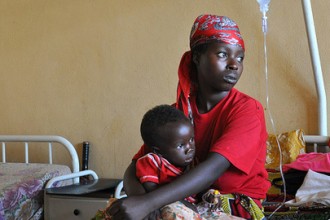McClatchy pulls its reporter from Africa. Shashank Bengali has been doing some really fascinating work there, but the mother ship called him home. Or more aptly, off.
I often feel like Africa is on the cusp, not only of incredible change but of tipping-point-style importance to American foreign policy. That’s probably a misunderstanding, biased by all the time I personally spend thinking about the continent. Still…
But as Shashank notices, there’s no tipping point for Africa in American newsrooms:
McClatchy, however, isn’t the only news organization that’s been forced to withdraw from the continent. Tribune Co., the parent of the Los Angeles Times and the Chicago Tribune, has gone from three reporters in sub-Saharan Africa down to one. The Washington Post recently closed its bureau in South Africa, leaving only a correspondent in Kenya.
This doesn’t mean the end of news from Africa; far from it. There are legions of freelance journalists, bloggers, relief workers and experts — African and expatriate alike — who continue to report, post and Tweet from the continent. They form a vibrant community, even if their insights don’t often trickle into the mainstream.
Yet for now, at least, American newspapers have decided that there will be less independent, professional journalism coming out of Africa. Economics don’t support it, and perhaps only some readers will really miss it.
The truth, however, is that this comes at a cost for Americans’ understanding.
Africa will continue to seem like a very faraway place.
Amen, brother.



